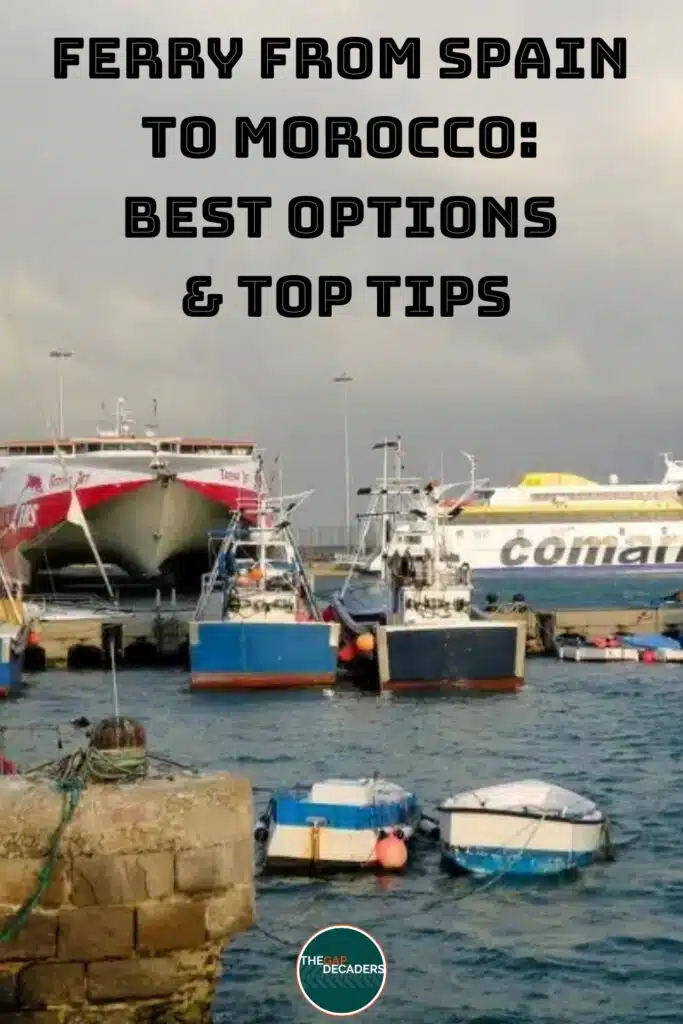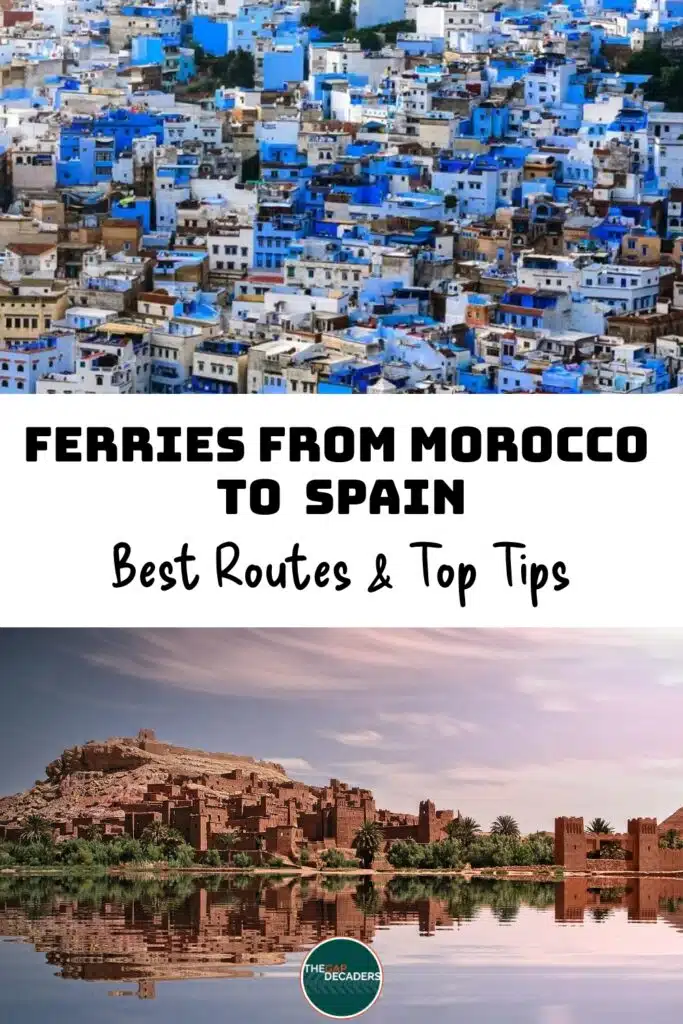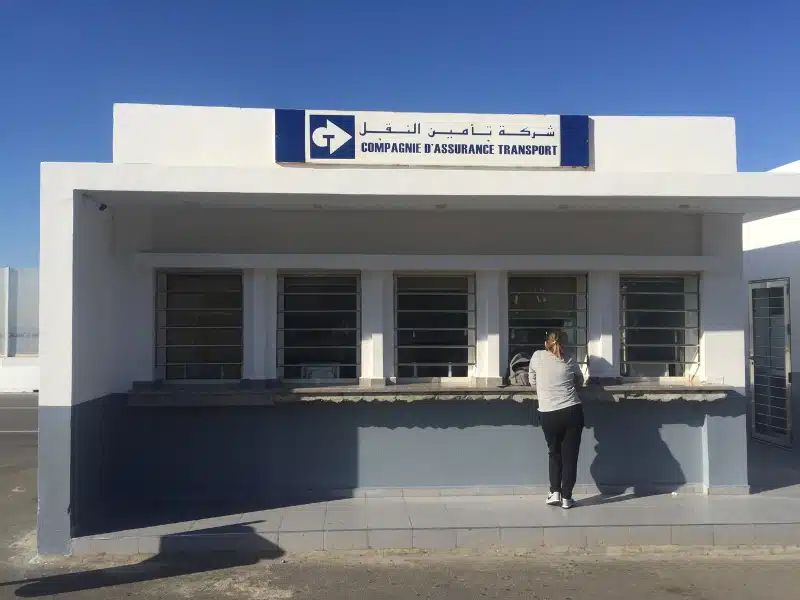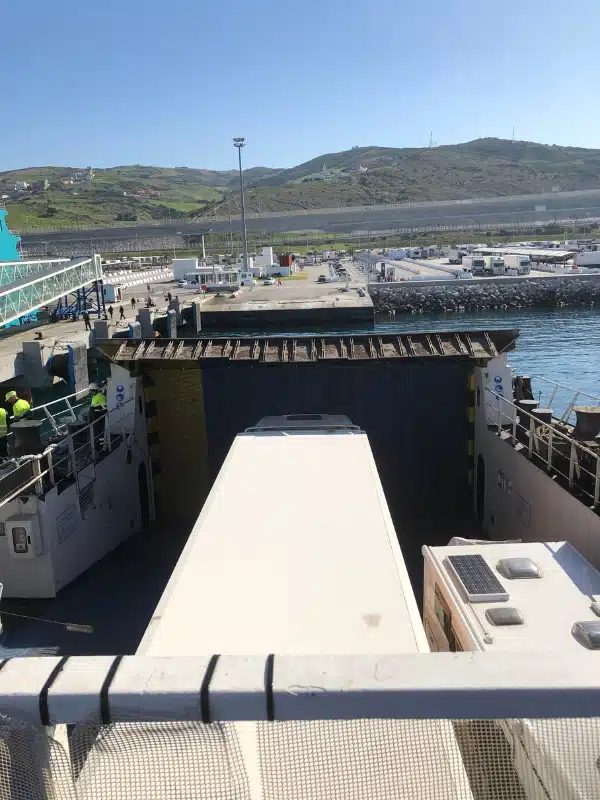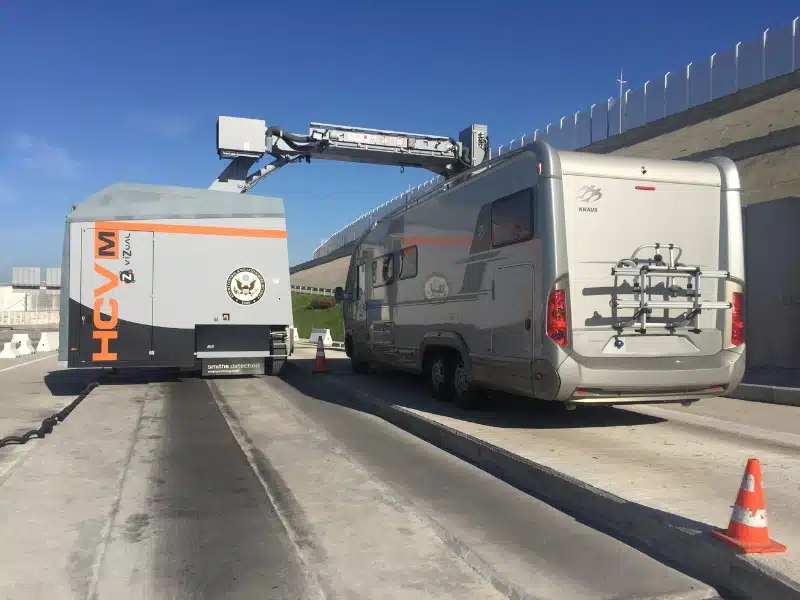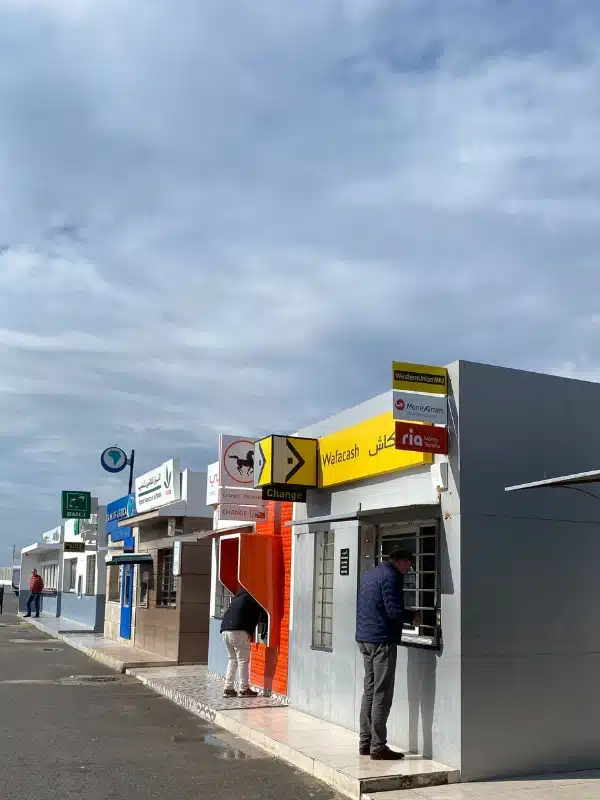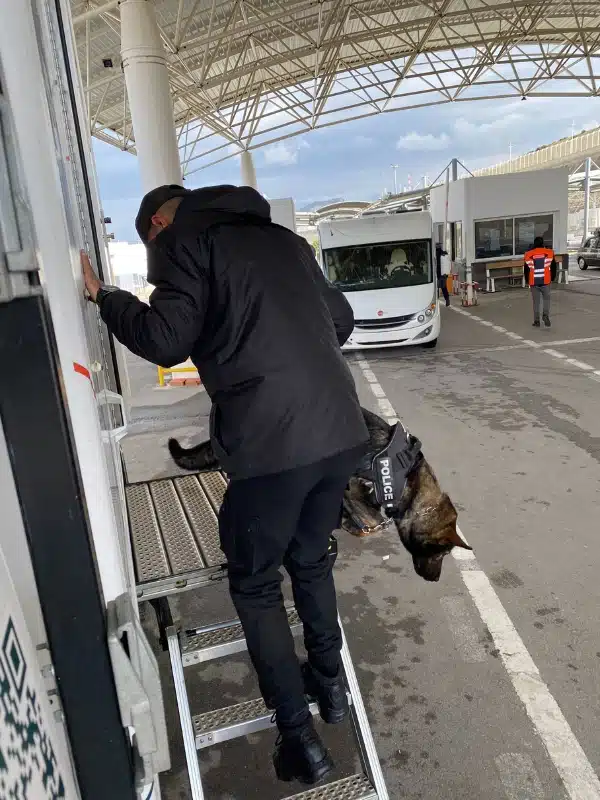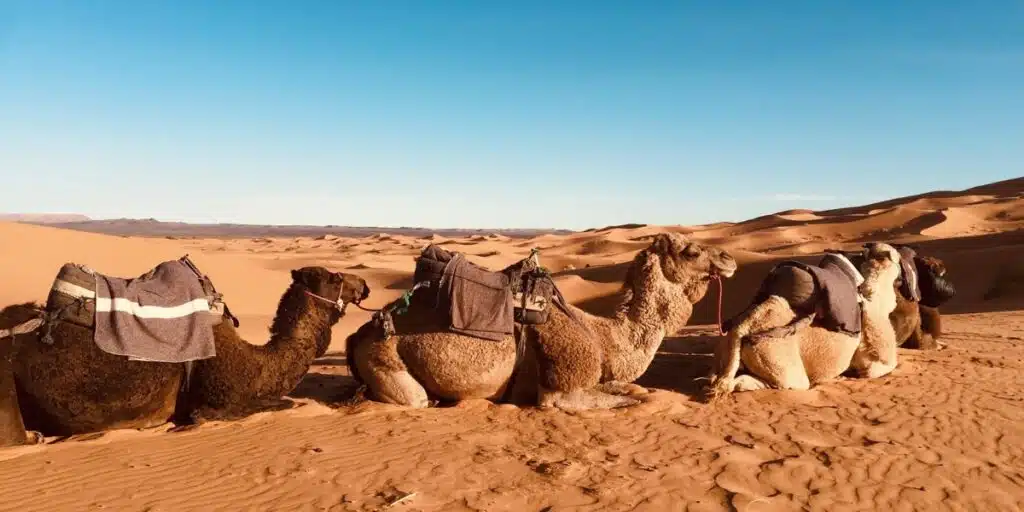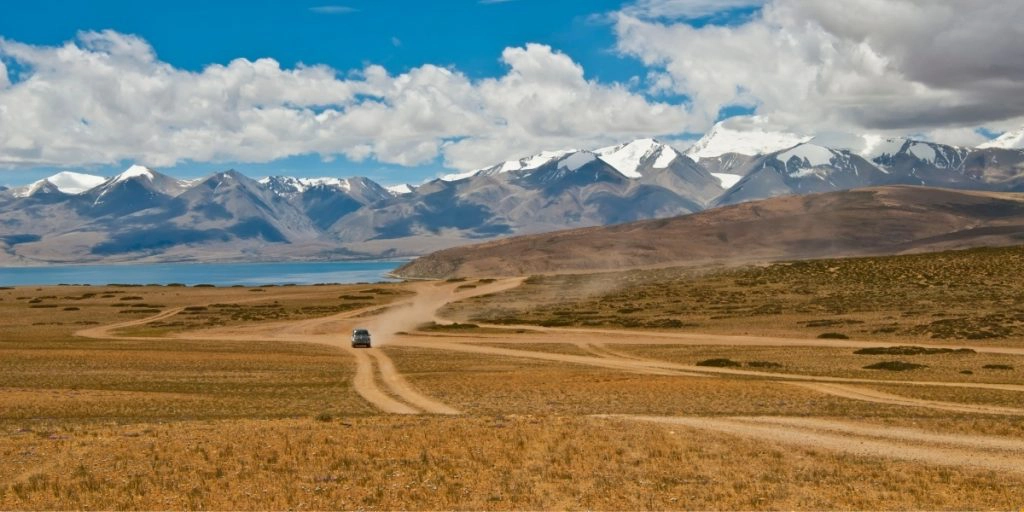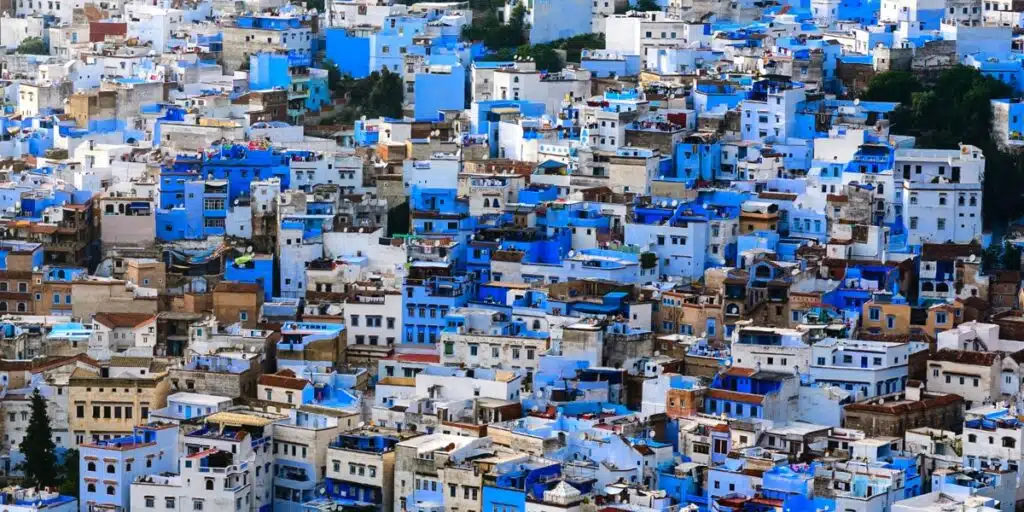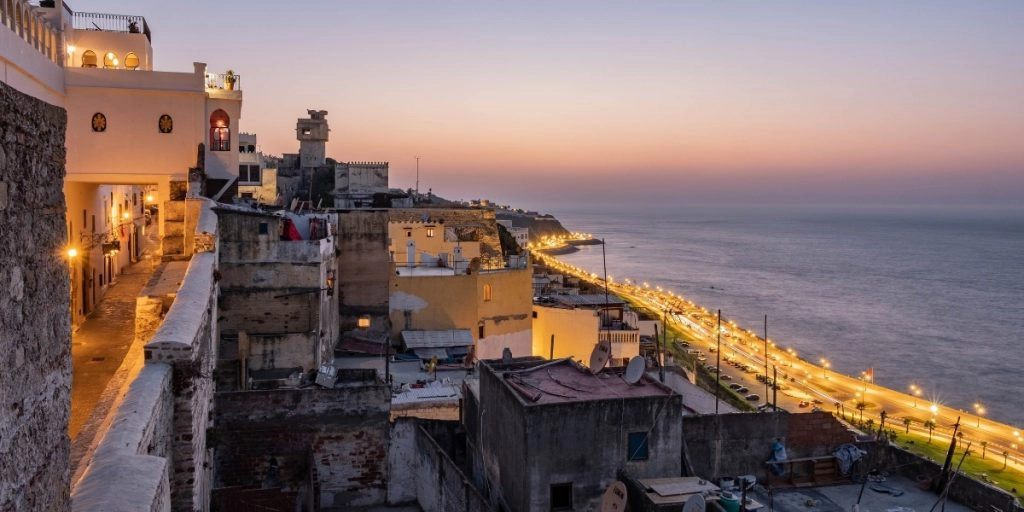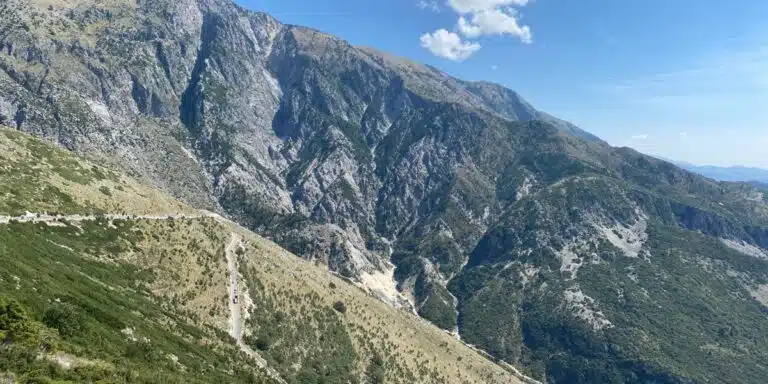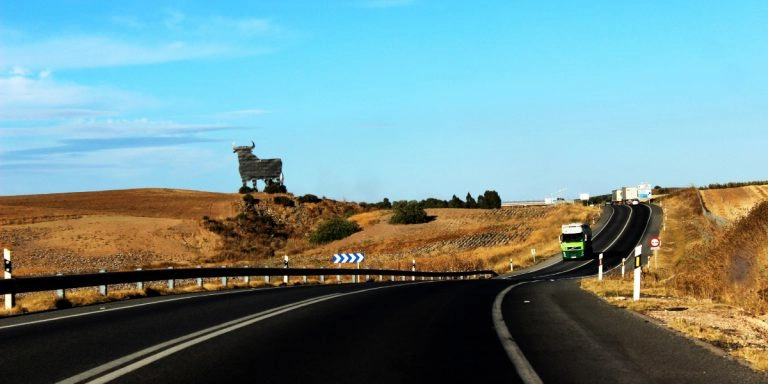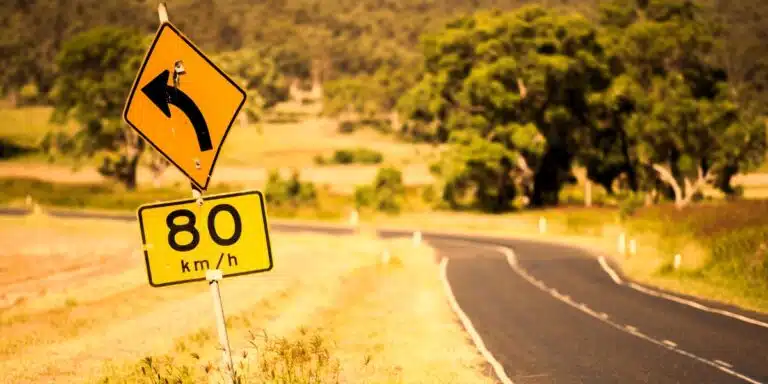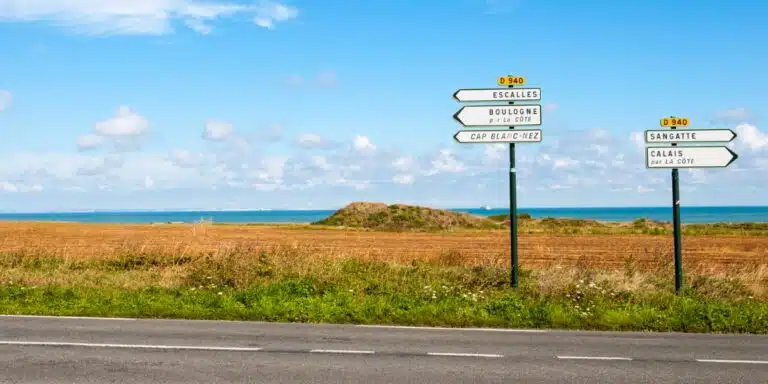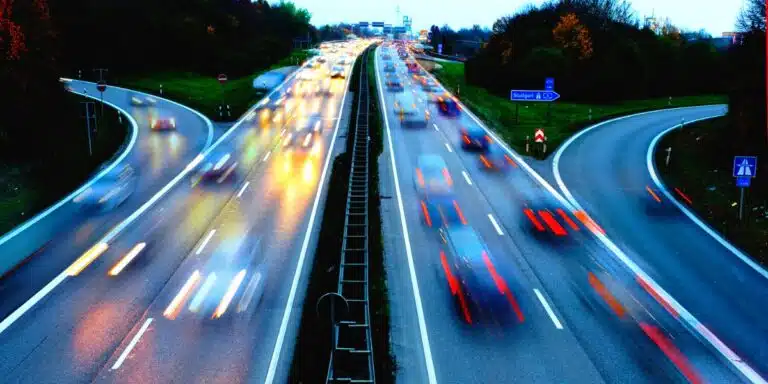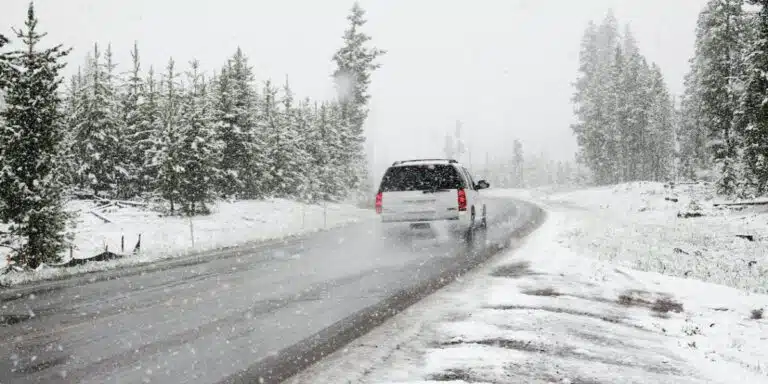This post may contain affiliate links, from which we earn an income. Click here to read our affiliate policy.
Spain is just a few kilometers from North Africa over the Strait of Gibraltar. This makes a visit to Morocco a tempting option if you’re in southern Spain and looking for an adventure!
Whether you plan to explore Tangier on foot or take a vehicle over the water for a longer Morocco road trip, you have many options.
Morocco is our winter escape, and we’ve made this journey over a dozen times using various ferries and departure and arrival ports. Our guide has all the information you need, including the best travel routes and essential tips for a smooth journey to Morocco.
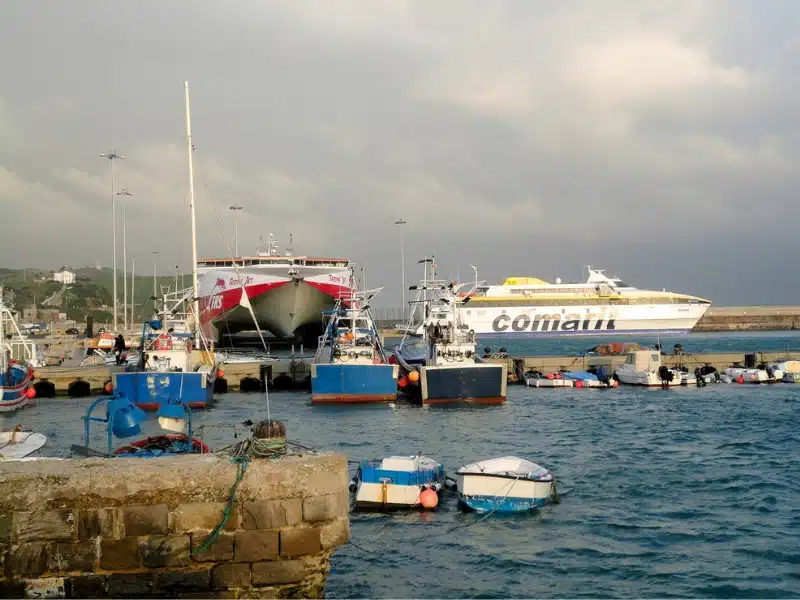
Map of Morocco Ferry Routes
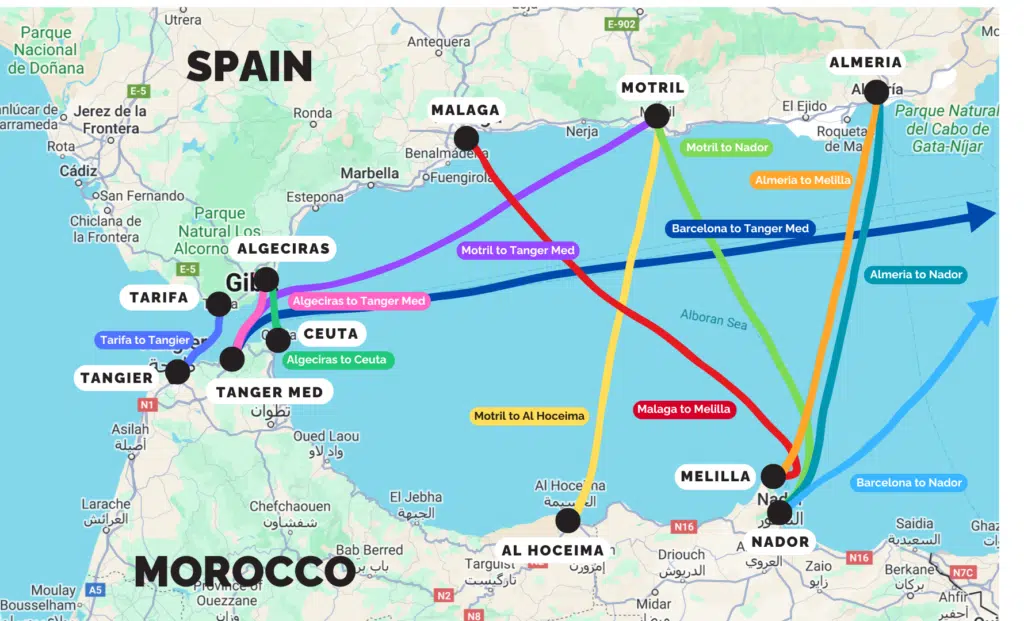
Tarifa to Tangier Ville
FRS Iberia (which now seems to be FRS DFDS) and Africa Morocco Link operate 17 daily sailings between Tangier and Tarifa. The Tarifa Tangier ferry is the quickest of all the crossings from Spain to Morocco, taking just an hour, making it a perfect option for foot passengers taking a day trip to Tangier.
Tangier Ville port is right in the centre of Tangier, so if you’re taking a car or camper you will need to negotiate Moroccan roads straight off the boat. It’s only a few kilometers to the intersections of the N1 and N2 main roads, and it’s a straightforward route if you use a sat nav, but this may not be the best option if you’ve never driven in Morocco before or you’re nervous about driving in new places.
We recommend Direct Ferries for all your ferry bookings. You can find the best prices, compare operators and timetables, and book ferry tickets, all on their easy-to-use website.
Ferries from Algeciras
Algeciras to Tanger Med
The easy 1.5-hour crossing into Morocco’s largest port is a popular option for drivers due to its easy links with the A5 motorway, which heads across the country to the Atlantic coast.
This is the most popular route for motorhomes because tickets can be bought at Viajes Normandie (known by many simply as Carlos after its founder). It’s a rite of passage to buy your ticket (with a complimentary bottle of wine and packet of biscuits) and then park up nearby for the night before your crossing.
Note: Some ferry companies refer to Tanger Med as Tangier Med. Make sure to distinguish between them. If you want to go to the city of Tangier, you must book a ticket for Tangier Ville. We know this because we got caught out booking a ticket for the Algeciras Tangier Med crossing and found ourselves in the commercial Tanger Med port and not the city!
Algeciras to Ceuta
This is actually a Spain-to-Spain crossing due to Ceuta’s status as a Spanish enclave. It takes around an hour, and there are no formalities on the boat or at either port.
However, leaving the enclave requires going through the Morocco-Spain border, which can sometimes take a while. If you plan to visit Morocco’s hidden gems of Tetouan and Chefchaouen, the famous blue city, then Ceuta as an arrival port makes a lot of sense.
Malaga to Melilla
Malaga is an ideal departure point for anyone touring Andalucia. The port is easily accessible from the A-7 road, and Malaga is in a central position on the coast. Melilla is also a great arrival port if you’re heading to Fes or traveling south towards the desert.
The crossing to Melilla from Malaga takes between 6 and 7 hours, and ferries travel up to nine times a week. When you arrive in Melilla, Spain’s second enclave on Moroccan soil, there will be no checks until you arrive at the land border with Morocco.
Ferries from Motril
Motril to Tanger Med
A popular route, there are 28 crossings a week between the small port of Motril and Tanger Med, taking between 6.5 and 8.5 hours.
On both outward and return ferries, you must book a cabin or seat at extra cost. You’ll be grateful of it on the return, as the boat leaves Tanger Med at midnight. Economy class seats are included in the price.
Motril to Al Hoceima
Right in the middle of Morocco’s Mediterranean coast, Al Hoceima is a good arrival port for Fes, Meknes, and the Atlas Mountains.
The crossing takes 5 hours and sails five times daily with Balearia and Armas. Both operators require you to book a seat or cabin for the crossing.
Motril to Nador
The same operators run the ferries between Motril and Nador, with the five weekly crossings taking between 5.5 and 7 hours. A seat or cabin is compulsory on both the outward and return journey.
Just south of Melilla, Nador has good transport links and an almost direct link to Merzouga and Erg Chebbi in the deep south of Morocco.
Ferries from Almeria
Almeria to Nador
This is the perfect route if you’re driving south on the AP7 in Spain and want to get to the south of Morocco as quickly as possible. From Almeria, you can be in Errachidia in around 14 hours if you catch the 1pm ferry!
The crossings take between 6 to 8.5 hours, and there are 29 weekly crossings with Baleria, Naviera Armas (previously Trasmediterranea), and Grandi Navi Veloci. You’ll have to book a seat or cabin for all these crossings, but some seats are included in the price.
Almeria to Melilla
A slightly shorter crossing than the Almeria to Nador route, you’ll probably find the border crossing longer than if your documents are processed on the crossing.
Ferries from Barcelona
Barcelona to Tanger Med
If you want to reduce your driving, especially if you’re coming from northern Europe and the UK, this ferry will deliver you directly into Tanger Med. From there, the Atlantic coast and the cities of Rabat, Casablanca, and Agadir are an easy drive south on the AI motorway.
The daily crossing with GNV takes a punishing 31 hours, leaving at 9.45am and arriving at 2.45pm the following day. Pullman seats are included in the price, or you can choose from various cabins, including shared (single-sex only), pet-friendly, and private accommodation.
Barcelona to Nador
With one Friday sailing a week, this ferry takes between 31 and 33 hours and departs Barcelona at 2.30am.
Despite that, this is a great ferry to avoid the long drive south, especially if you’re planning a circular Moroccan trip heading south for the caravan trails, kasbahs, gorges, and the Sahara before coming north up the coast or through the High Atlas.
Ferries from Other Countries
You can also sail to Tanger Med and Nador from Sète in France and from Genoa in Italy. Ferries from Sète take around 45 hours, and from Genoa, 52 hours.
If you don’t want to drive through Spain or travel on a budget, these crossings might be a better option for you.
Booking Your Spain to Morocco Ferry
We recommend Direct Ferries for all your ferry bookings. You can find the best prices, compare operators and timetables, and book ferry tickets, all on their easy-to-use website.
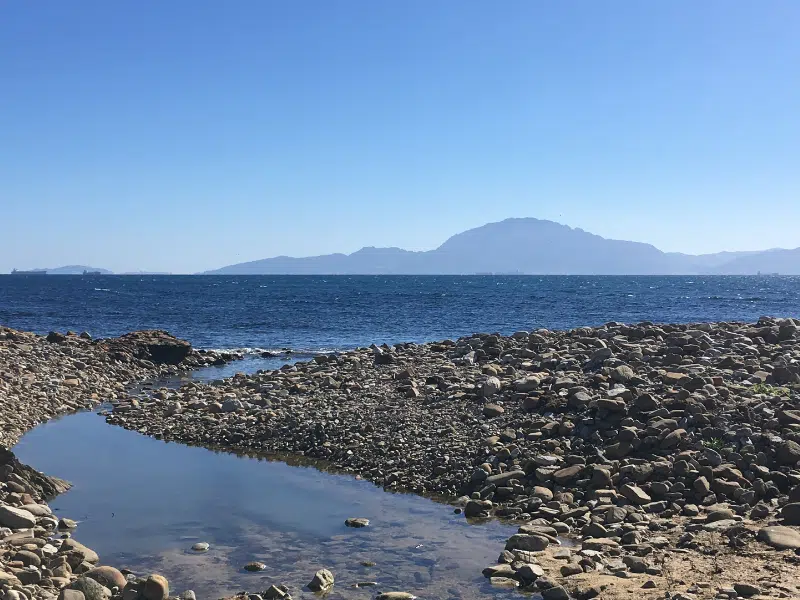
Is this your first time visiting Morocco? Get all the information you need in our Morocco Travel Guide, including what to pack, the best time of year to go, getting there, and practical tips to help you have the best trip!
Spain to Morocco Ferry Tips
If this is your first time in Morocco you will find the culture very different to back home. Find out what you need to know before visiting Morocco so you arrive with some understanding of the country.
Ticket Type
Online tickets are usually cheaper than those bought on the day. An open return is the most expensive ticket, but it means you have the freedom to stay for up to three months in Morocco without worrying about rushing back to Spain. This ticket is popular with motorhomers in Morocco.
Timings
In all our years of crossing the Straits of Gibraltar, our booked ferry has always been late departing Spain and Morocco, sometimes by more than two hours! This seems to be a normal pattern, so be patient while waiting to board and allow enough time on the other end for delays.
At the Port
If you buy a ticket online, you normally have to go to the ferry company’s reception at the port to have the online ticket exchanged for a paper one. I’m sure they will develop the ability to scan online tickets at some point in the future, but it hasn’t happened yet!
Waiting to board can be a bit chaotic as the ferry staff try to fill as much space on the car decks as possible. Don’t be surprised to find yourself shunted around before you board and sandwiched in when you do!
On the Ferry
There are places where you can buy hot and cold drinks and snacks. As usual, these are expensive and not especially good.
Make sure to take your passport on board with you (don’t leave it in your vehicle) as there are Moroccan border force offices on each ship. As you leave the vehicle decks for the passenger decks you’ll be handed a white immigration form. Complete this and take it with your passport to the border force office to be stamped.
On Arrival
On arrival at the post, you’ll be disembarked, and foot passengers will be free to go. Vehicle drivers will have to get a TIP (temporary import permit) for their vehicle, and some vehicles will be x-rayed.
This involves sharing your registration document and driving license with customers who take it away (a little disconcerting!) before returning with the TIP, a small slip of paper you need to keep for roadside checks and for when you take your vehicle out of Morocco at the end of your stay.
If your usual provider doesn’t provide a green card for Morocco, you may need to buy vehicle insurance at the port. Insurance provided for temporarily imported vehicles is only third-party; it’s not possible to buy fully comprehensive insurance at the border unless you’re a resident. Expect to pay around 50 euros (in cash) a month for a car and double that for a motorhome.
All of Morocco’s ports have pretty good road connections. You may have to drive in the city before you get to the motorway, and we would advise you to have a sat nav to help you get out of the city as quickly and easily as possible.
If you’re planning to use the A1, A2, A3, A4, A5, and A7 toll roads run by Autoroutes du Maroc, you can only pay in cash. The Moroccan Dirham is a closed currency, meaning you can’t buy it outside of Morocco, but there are plenty of ATMs at the port after the final customs checks.
- Getting insurance
- Arriving at Tanger Med
- Being x-rayed
- ATM’s at the port
- Waiting to board at Algeciras
- Police dog check
Want to stay connected in Morocco? In our detailed guide to SIM cards in Morocco, we share everything you need to know about buying and using Moroccan SIM and eSim cards.
Onward Travel in Morocco
Morocco is a country of contrasts. From the green north and the majesty of the Atlas Mountains to the dry and arid deserts of the south via the wild Atlantic coast, the photogenic landscapes of Morocco will take your breath away.
A road trip is a great way to see the country’s best bits. Or, base yourself in a city like Marrakech or Fes and take day trips to the Erg Chebbi dunes or Essaouira for the beach and one of Morocco’s prettiest Medinas.
Make sure you have travel insurance you can trust when visiting Morocco. We recommend True Traveller for their 5-star TrustPilot reviews, variety of cover options, best activities cover as standard, great prices, and excellent service.
Looking for more road trip resources? Check out these top posts…
Driving in Albania: Essential Tips for an Amazing Trip
Driving to Spain from UK: Best Routes & Driving Tips
Top Road Trip Destinations in Queensland: Tips & Tricks
Driving to France from UK: Absolutely Everything You Need to Know
Driving from UK to Germany: Best Routes, Costs & Tips
Tips for Stress-Free Holiday Road Trips with Your Family
Love it? Pin it!
